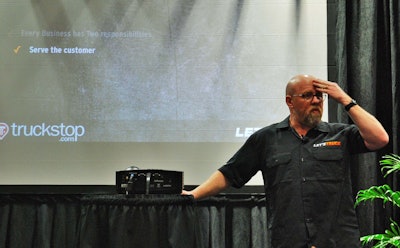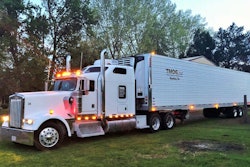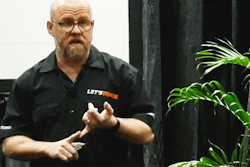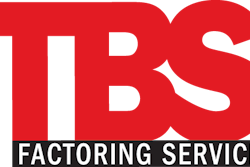
The last of three separate seminars at the Mid-America Trucking Show conducted by Sirius XM radio host and owner-op coach/consultant Kevin Rutherford was billed to focus on surviving (and thriving) in the first year under your own authority as an owner-op. Rutherford in recent years has pushed the idea that owner-operators with authority pursuing relationships with brokers to move freight could make for the most efficient models in trucking, as long as all parties are honest with each other.
As any regular reader will know, that’s not always the case when we’re talking about brokerages — and the same can be said about some trucking companies large and small, for that matter, as plenty decent brokers emphasize in conversation.
If a culture of dishonesty exists in the dark corners of the freight brokerage world, it’s exacerbated by communication breakdown that can result from a culture of entitlement among some owner-ops themselves, Rutherford suggests.
Too many, he believes, shoot themselves in the foot with a view of a freight broker they’re working with as at best a necessary evil, as something less than their central customer. For an owner-operator in business as a motor carrier with authority and working primarily with brokers, those brokers are the customer because they’re the people paying you for your business’ service, Rutherford emphasizes. Too often, a sense of entitlement to freight among owner-operators working load boards exclusively chasing freight rates above all else — one-and-done is the phrase brokers sometimes derisively use to refer to such owner-ops, he points out — is the principal issue in communication breakdown between the parties.

Rutherford’s central messages on surviving that first year as an independent with authority? Use business basics and know and track your costs, revenues and net income so you know when you’re doing what any business ought to be in business for — making a profit; define the business model as much as you can to specialize in particular freight or in a lane; and perhaps most importantly work hard to establish tight relationships with that customer — whether that’s a direct-shipper customer or, yes, a few or several brokers you serve as you would any customer, the most important piece of any business’ calculus, without which the rest of it just doesn’t happen. Take a listen:
What I don’t think you’ll hear in the excerpted audio from Rutherford’s presentation there is one of the points he makes about building relationships with that broker customer. I’ve heard him present more than once, of course, as have many of you, and he often asks a pretty simple question as a sort of hypothetical to the audience, which was also true in the latter part of this third seminar he conducted at MATS. The question goes something like this: How many of you have actually met face to face with one of your brokers in their place of business?
Invariably, there aren’t many hands in the audience that go up, and such was also the case for the independents in attendance that third day of MATS.
I asked ZBR Transportation Services broker and former driver and owner-operator Al Zellmer, based in Claremont, Ill., a variation on that question — how many prospective partner owner-ops have you met in person there at the office? — and got a similar response from him: “Never had that happen,” he says.
We were talking after publication of the worst-case-broker-scenarios story in the February — “Highway Robbery,” accessible via this link. After the short shrift that story seemed to give to the reality that the good guys among brokers are certainly more numerous the truly bad or worst (again, the latter the focus of the piece), Zellmer wasn’t the only broker I heard from in the wake of the publication.
As Rutherford says in the podcast, it’s often these kinds of worst cases that tend to dominate discussions among owner-operators about broker partners/customers: What is my legal recourse when nonpayment or another snafu happens?, for instance. Rutherford, and brokers like Zellmer, don’t want you to get there in the first place. Building good relationships with a small set of go-to brokers so that they call you for their best freight (which often never reaches the load boards) is perhaps an ideal avenue toward that end.
“Instead of being on opposite sides we should all be together in this” freight movement thing, Zellmer says. “Trucking business is a people business. The more that you know about the people you’re dealing with the better.”
While Zellmer may never have had a sit-down with a prospective partner owner-op in his office, “we have had relationships that have been built, yes, definitely,” he says, which reminds him a bit of how trucking used to be and still is in some quarters for small or large fleets with close-knit agent/operator networks. “I can remember back in the day you had an agent that worked for the trucking company and they would discuss the loads, and the trucker would call in. … You knew your truckers, and you knew” what they wanted.
If that load from Tulsa to Dallas came up needing covered, for instance, “you knew Rob wanted that load,” Zellmer says. “We’re not a big brokerage” – three people work in the ZBR’s Claremont office, he adds.
Speaking of that sense of entitlement to freight that Rutherford mentions, Zellmer invites any trucker to spend a day in his shoes if you don’t believe it. “I would invite anybody to come by – truckers especially – to come here and answer the phone for a whole day, especially when you’ve got a bunch of loads on. You would not believe the rudeness you hear, you wouldn’t believe it.”
Among too many haulers, there’s a “total lack of professionalism,” Zellmer says, when it comes to doing business. “Sitting in the truck stop you can hear him talking. ‘The dispatcher is no good, the broker kept $1,000 off the top.'”
A day in the office with Zellmer, he says, and you might learn that, though “rates have gone up dramatically, any guy on this planet who thinks we make $1,000 a load, well, that’s an uneducated individual. We’re lucky if we can make 10 percent — it’s a big deal when that happens. Around Christmas” this past year, “it was more like 5 percent,” if that. “If anybody begrudges a broker making a few dollars on a load,” keep in mind (and Rutherford echoes the sentiment in the podcast) “it takes time and effort to get loads.”
You’re always free to “hire somebody or do it on your own” yourself, Zellmer says. Given the thousands of brokers there are, it’s clear there’s a need being filled, and among those of you who do have direct shipper customers, you know the work put in to get and keep them. What do you think? Is it worth 5 percent or, in plenty cases Zellmer mentions, less than even $50 a load? …
“A little business acumen and people skills” will go a long way in building trust with any regular broker — or shipper, for owner-ops who go that route, Zellmer adds. “But unfortunately this business is just like a wood stove. You get to know somebody and you get that warm and fuzzy feeling, and then it goes south.”
Of the owner-ops he’s working with regularly, though, he says it’s not uncommon for some to be at the pick-up facility “before they even get the rate confirmation” after calling in for, or getting a call from Zellmer’s office with, a load. “That’s when we have an owner-operator we can really trust. They’re pulling into your shipper without paperwork – that’s when you know you’ve got a good relationship going.”











